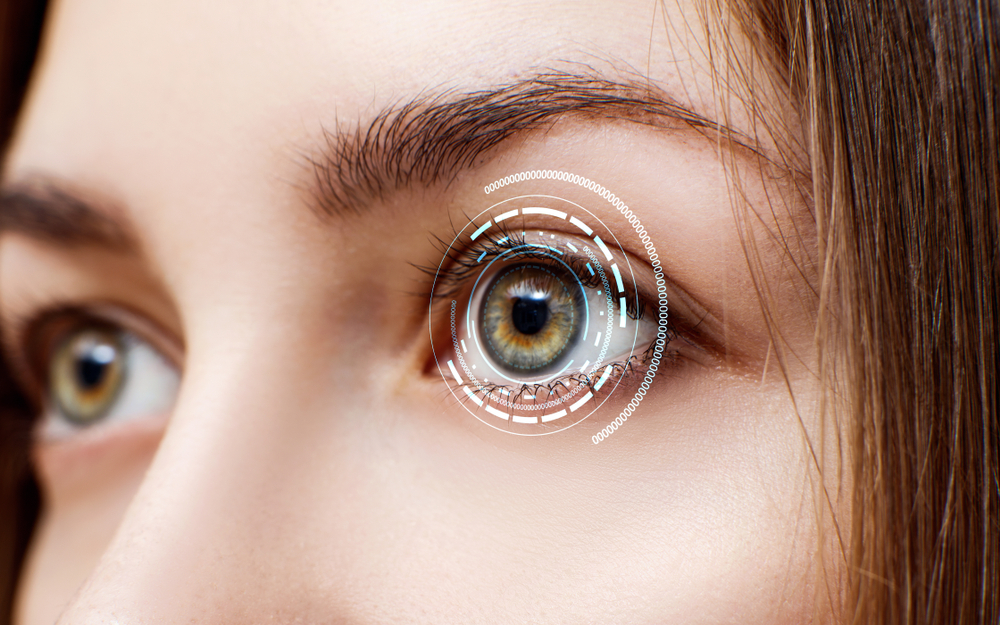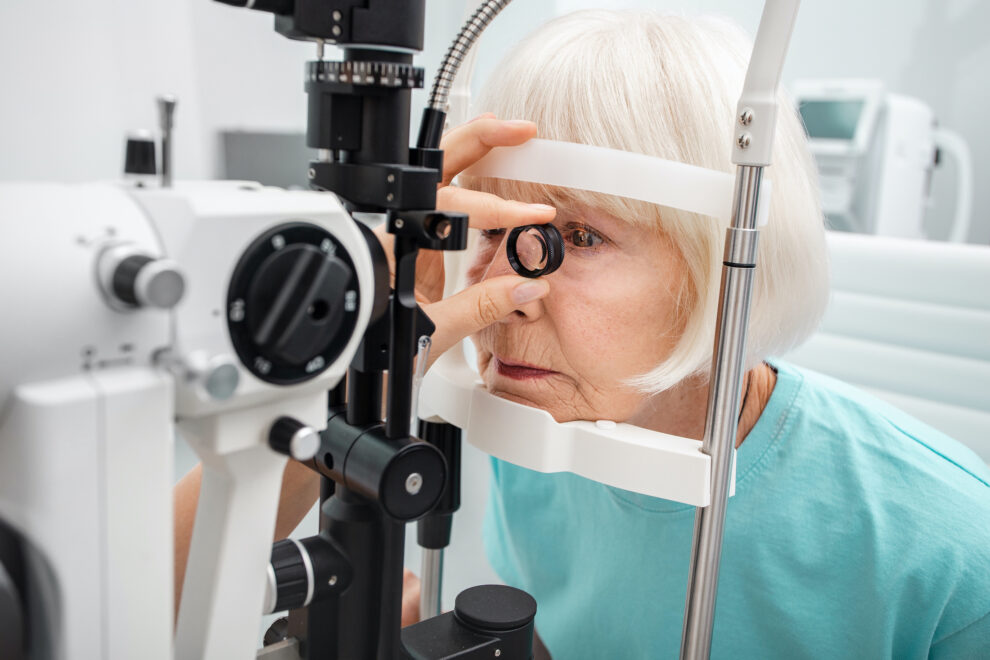Retina

Retina
The retina is a complex structure that can be the root of many vision issues. At Palmer Eye Center, our eye care professionals can help monitor your eyes for any retina conditions that may arise so you can continue to experience healthy vision.
What is the Retina?
The retina is a thin layer of tissue located at the back of the eye, and it plays a vital role in vision. It contains millions of specialized cells that convert light into electrical signals that the brain can interpret.
These signals are sent through the optic nerve to the brain, where they are processed and transformed into the images you perceive. The retina is essential for clear vision and is responsible for many other aspects of vision, like color perception and contrast sensitivity.
Any damage or dysfunction to the retina can result in vision problems or even blindness. Therefore, it is essential to take good care of your eyes and visit your eye doctor for regular exams to ensure you are not at risk for vision loss.
What Are Flashes?
Flashes refer to seeing brief, bright bursts of light in your field of vision. They can appear as flickering, twinkling, or flashing lights and may be accompanied by other visual symptoms such as floaters, halos, or blurred vision.
Flashes can be caused by various factors, including migraines, head trauma, retinal detachment, or ocular migraines. They can also be a symptom of a more serious condition, such as a stroke or a retinal tear.
If you experience flashes of light in your vision, particularly if they are accompanied by other symptoms such as a sudden increase in the number of floaters, you should see your eye doctor at Palmer Eye Center in Tallahassee, Floridaright away. Your eye doctor at Palmer Eye Center can determine the underlying cause of the flashes and refer you to a retinal specialist for treatment if needed.
What Are Floaters?
Floaters are small specks, spots, or thread-like structures that appear to drift across the visual field. They are commonly described as black or gray dots, cobwebs, or transparent strands and can be seen against a plain background or a bright light.
Floaters are caused by small particles or clumps of collagen suspended in the vitreous, the gel-like substance that fills the inside of the eye. As light passes through the eye, these particles cast a shadow on the retina, creating the perception of a floater.
While floaters are usually harmless, they can be a symptom of a more serious eye condition, like a retinal tear or detachment. If you experience a sudden increase in the number of floaters, accompanied by flashes of light or a change in your peripheral vision, visit your eye doctor at Palmer Eye Center immediately.
In most cases, floaters do not require treatment and will gradually become less noticeable over time. However, in some cases, your eye doctor at Palmer Eye Center may refer you to a retinal specialist for further evaluation.
What Are Some Other Common Eye Conditions that Affect the Retina?
Various eye conditions can affect the retina, leading to vision problems and potential vision loss if left untreated.
Macular Degeneration
One common condition that affects the retina is age-related macular degeneration (AMD), which is a leading cause of blindness in adults over the age of fifty.
AMD affects the macula, the central part of the retina responsible for detailed and precise vision and can cause vision loss in the center of the visual field. Another condition that can affect the retina is diabetic retinopathy, which occurs when high blood sugar levels damage the blood vessels in the retina.
Over time, this can lead to vision loss or blindness if left untreated.
Retina Tears/Detachments
Retinal tears and detachments can also affect the retina.
A retinal tear occurs when a small tear or break develops in the retina, while a retinal detachment occurs when the retina becomes separated from the underlying tissue. Both conditions can cause a sudden decrease in vision, floaters, flashes of light, or a curtain-like shadow across the visual field.
If you are experiencing any changes in your vision or have concerns about your eye health, it is essential to consult an eye care professional at Palmer Eye Center. If treatment for a retina condition is needed, they will refer you to a retina specialist for further evaluation and appropriate treatment.
How Do Eye Doctors Diagnose Retina Conditions?

To diagnose various retinal conditions, your eye doctor will perform a thorough eye examination, which may include several diagnostic tests. The first step in the process is usually a comprehensive eye exam, which involves a review of your medical history and a visual acuity test to measure how well you can see.
During the exam, your eye doctor may also perform a dilated eye exam to examine the retina more closely. This involves using eye drops to dilate the pupils, allowing your eye doctor to see the back of your eye more clearly.
In addition to a dilated eye exam, your eye doctor may also use imaging tests to diagnose retinal conditions. These tests may include optical coherence tomography, also known as OCT, which uses light waves to produce detailed images of the retina.
If your eye doctor suspects you have a retinal condition, they may refer you to a retina specialist for further evaluation and treatment. A retina specialist is an ophthalmologist who has undergone additional training in diagnosing and treating conditions that affect the retina.
It is essential to schedule regular eye exams and promptly report any changes in your vision to your eye doctor.
Are you experiencing vision changes or symptoms of a retinal condition? Schedule an appointment at Palmer Eye Center in Tallahassee, FL, today!


